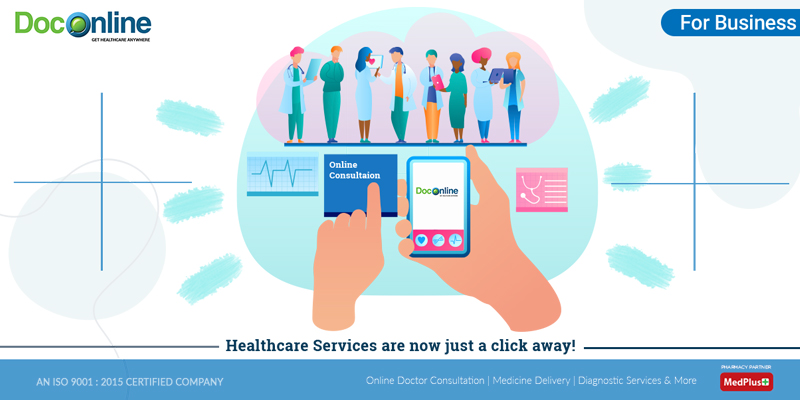The Future of Medication: Discovering Subscription Based Healthcare Designs
The Future of Medication: Discovering Subscription Based Healthcare Designs
Blog Article
Browsing the Future of Medicine With Subscription-Based Health Care Services
As the health care industry advances, subscription-based services arise as a pivotal version assuring to reshape person treatment delivery. With the possible to provide streamlined, affordable remedies with foreseeable rates and personalized attention, these solutions stand at the leading edge of modern clinical development. Yet, as we consider their surge, one should consider the ramifications of incorporating such systems right into existing medical care structures. What obstacles do they posture in regards to data protection and fair gain access to, and how might they redefine the patient-provider relationship? The answers to these inquiries can basically modify our technique to health care.
Rise of Membership Health Care
As medical care systems all over the world face enhancing pressures from climbing costs and need for solutions, the arrival of subscription-based health care designs has arised as a transformative pattern. This innovative approach is disrupting conventional healthcare shipment by providing a predictable, flat-rate settlement framework for medical solutions. Rooted in the concepts of attendant medicine, subscription-based healthcare allows companies to concentrate on customized patient care while simultaneously handling functional efficiencies.
The rise of this model can be associated to several aspects. Technical improvements have made it possible for more smooth integration of care with telehealth and digital health documents, helping with the scalability of membership solutions. The raising customer demand for transparency and predictability in medical care expenses has actually driven the change towards this version. Subscription-based solutions commonly use straight accessibility to healthcare experts, which can lower the management burdens linked with insurance policy cases and compensations (subscription based healthcare).
This model is gaining grip amongst diverse healthcare providers, from medical care medical professionals to specialized clinics, by lining up financial rewards with precautionary and constant treatment. By moving the focus from volume to value-based care, membership health care has the potential to reshape the landscape, promoting a more patient-centered and lasting method to health and wellness administration.
Advantages for Patients

Additionally, subscription-based services typically highlight preventative treatment, urging routine check-ups and wellness testings. This proactive approach can cause very early detection of health and wellness concerns, possibly boosting outcomes and decreasing lasting medical care costs for individuals. Such versions commonly offer clear pricing, allowing people to better recognize their healthcare costs and prevent unanticipated clinical costs.
The customized nature of subscription-based healthcare likewise enhances person experience. Individuals can get tailored medical care strategies that fit their particular requirements, fostering an extra patient-centric strategy.
Innovation's Function in Transformation

Expert system (AI) plays an important role in predictive analytics, helping in early diagnosis and tailored therapy plans. AI formulas assess huge datasets to recognize patterns that may be overlooked by human observation, therefore boosting professional decision-making. Digital wellness documents (EHRs) streamline client details management, guaranteeing continuity and coherence of treatment throughout various services and suppliers.
Blockchain modern technology boosts data safety and security and personal privacy, vital for keeping person rely on electronic platforms. It allows transparent and safe and secure transactions of clinical data, guaranteeing that sensitive information continues to be secured. With the integration of equipment learning and AI, blockchain can automate complex healthcare procedures, decreasing administrative concerns.
Difficulties and Factors To Consider
While technology pushes the abilities of subscription-based healthcare solutions, it likewise introduces a collection of challenges and factors to consider that have to be dealt with to ensure effective implementation. One substantial obstacle view publisher site is the equitable availability of these services. As membership versions usually rely on digital systems, there is subscription based healthcare a danger of exacerbating the electronic divide, leaving behind individuals without internet accessibility or digital literacy. Making certain these solutions do not disproportionately profit only tech-savvy and affluent populations is necessary.
Data personal privacy and safety and security represent another essential consideration. Subscription-based services frequently involve the collection and storage of substantial quantities of individual health details. Carriers should comply with strict data protection regulations to maintain client trust fund and prevent unapproved gain access to, which could result in considerable honest and lawful consequences.
Additionally, the sustainability of registration models presents an obstacle. As medical care needs progress, keeping a cost-effective balance in between registration fees and solution top quality is crucial to stop individual dissatisfaction and attrition. Additionally, incorporating these services within traditional healthcare systems requires seamless interoperability between platforms, which is usually a complex and resource-intensive endeavor. Resolving these obstacles is important as subscription-based medical care solutions continue to broaden and develop.
Future Implications for Medicine
Subscription-based medical care services are poised to considerably influence the future landscape of medicine by improving just how care is accessed and delivered. These models supply the possible to equalize healthcare gain access to, providing people with even more customized and prompt interventions. By leveraging modern technology, such as telemedicine and information analytics, subscription services can promote continual monitoring and tailored health and wellness monitoring, thus improving results and decreasing the problem on conventional healthcare systems.
As these solutions gain grip, they could promote a change in the direction of preventative care, emphasizing the value of very early detection and monitoring of chronic conditions. This aggressive strategy might inevitably decrease medical care prices by minimizing the need for pricey treatments occurring from late-stage illness administration. Registration designs supply a scalable option to resolve differences in health care gain access to, particularly in underserved or country populations.
However, the shift in the direction of subscription-based versions necessitates addressing governing and moral considerations, consisting of information personal privacy and fair accessibility. As the market evolves, collaborative efforts between policymakers, you could check here technology programmers, and doctor will be vital to developing robust structures that protect patient rate of interests while cultivating development. Eventually, these services guarantee to add considerably to a more efficient, patient-centered medical care community.

Verdict
Subscription-based medical care services stand for a substantial evolution in the clinical area, offering foreseeable costs and personalized treatment that enhance accessibility and prioritize precautionary procedures. As the healthcare landscape progresses, subscription models are poised to play an essential role in forming the future of medicine.
As the health care sector progresses, subscription-based services emerge as a critical design assuring to improve patient care shipment.As health care systems around the world face boosting stress from climbing prices and need for solutions, the development of subscription-based health care versions has emerged as a transformative pattern (subscription based healthcare).With the rise of subscription-based healthcare versions improving traditional health care distribution, people are starting to experience significant advantages from this innovative method. As health care needs evolve, preserving an affordable balance in between membership costs and service quality is crucial to protect against patient dissatisfaction and attrition.Subscription-based health care services are positioned to considerably affect the future landscape of medicine by reshaping just how care is accessed and supplied
Report this page